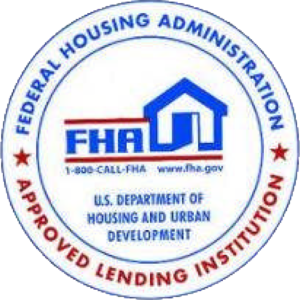Previously, we wrote about how to position yourself to be ready when you find a good deal on a house. We also talked about some ways to determine if you are getting a good deal or not. In this article, we are going to delve into nine different ways to actually find a deal.
9 Ways to Find A Good Deal on a House
1. Current Listings – When looking at listings on a real estate site or directly on the MLS, take note of two things: the number of days the house has been on the market and whether or not it is being sold “as is”.
Many people perceive houses that have been on the market for a long period of time as having something wrong. That means less competition and a chance to possibly get a deal. For example, maybe a homeowner thought their house was worth considerably more and, after having the house sit on the market for a long time, has started to transition priorities from getting top dollar to selling the house and moving on (especially if they have already purchased another house). The houses that are being sold “as is” are usually houses that have something wrong and the seller would rather sell the house and not deal with it. You have to find out what the issues specifically are. Maybe they are things that have scared away other buyers but are things you can address (if your brother is an electrician, big electrical problems aren’t a problem if the price is right).
There are also analytics companies that can help you find deals on the MLS. Companies like Weiss Analytics (Listscan) specialize in estimating the value of houses. Their software takes these values and matches them against the houses on the MLS and then allows you to sort by biggest discount to find the houses that are listed at the biggest discount to the estimated value.
2. Short Sales – a short sale occurs when a homeowner tries to sell a house that is worth less than what is owed. It is typically initiated by the seller in order to dispose of the property before foreclosure to prevent an enormous foreclosure-related blow to their credit. The bank has to agree to let the homeowner sell the house so you might see short sales listed a “subject to bank approval”.
To find a short sale search the county records in your area. They are sometimes listed online, but you might have to go to the county clerk’s office. There are also agencies that specialize in short sales, get on their mailing lists.
You might get a deal on a short sale property, in part because other potential buyers don’t want to deal with the risk, the extra work, and the wait. For one, short sales can be risky, especially if they are initiated by the lender. If the seller refuses to move out, you might incur the eviction costs after closing. Lenders also want to get the most out of the property, so they might hold onto offers for months waiting for a better offer to come in. Negotiations for a short sale can involve both the lender and the homeowner, which can make things tricky. It is a good idea to have a realtor on your side that had dealt with these situations before.
3. Foreclosures – These are properties that the lender owns. This is typically the next step after the short sale. The advantage of foreclosures is that the previous owner has already moved out.
There are some drawbacks as well. You won’t be able to tour the property in advance, and it isn’t uncommon for the previous homeowners to strip out anything they think is of value prior to leaving. If you purchase a home at a foreclosure auction you can have it inspected, but you can’t renegotiate the price. You either have to pay or walk away, and not get reimbursed for the inspection.
When it comes to foreclosures some states are judicial states and some are trustee states. In a judicial state, the previous owner can reclaim their property up to six months after foreclosure. You’ll want to be careful with this.
The best ways to find foreclosures are to:
- Search city or county public records
- Search for listings in local papers – often public auctions have to be listed by law
- Google search using words “foreclosure” or “foreclosure auction”
- Look at auction websites focused specifically on foreclosures –Auction.com, RealtyTrac, or Foreclosure.com.
4. Bank Owned – These are also referred to as REO (Real Estate Owned) properties and are properties that have already been repossessed in foreclosure but have not sold at auction. You may be the only buyer for these, so you will have time to look at the property and get assessments for how much it will cost to make the needed repairs before you make an offer. To find these properties you can go to a lender’s website or you can search the term “REO” and the zip code.
5. Buy A Fixer-Upper – A house that needs some repairs can be a good deal, especially if you are handy and can do most of the work yourself. Look for houses that have cosmetic damage – like peeling paint, siding, broken shutters. These are things you can fix without spending a lot of money. If the damage is more structural in nature the renovation price tag might be more than the savings and some lenders might not want to lend. A 203k Loan can help cover the cost of both the purchase and the renovations.
6. New Multi-Family Construction – Developers who are building a multi-family development are probably leveraged. They have borrowed money to do the project. Selling some of the units prior to or in the early stages of construction can give their lenders confidence and also sends a signal to other potential buyers. If you can be one of the early-stage buyers, you can get a deal. Just make sure you get a time commitment on when you will be able to move in. Some construction projects may linger on and leave you with no place to live if you have already committed to moving from your existing home or apartment.
7. Finding Off-Market Leads – Keep your ears and eyes open for people that have changes in their living circumstances such as a job change or a divorce. Sometimes this might be in the local paper (i.e., obituary columns or companies that announce a move). Find a way to tactfully approach them and see if they might be interested in selling. The other way is to find houses that you like and just ask.
8. Special Program – The office of Housing and Urban Development (HUD) has several programs designed to help people buy homes at reduced rates.
- Good Neighbor Next Door – This program is specifically for law enforcement officers, teachers, firefighters, and emergency medical technicians that want to help with community development. HUD offers a 50% discount from the list price of a home. In return, the eligible buyer must commit to live in the property for 36 months as his/her principal residence.
- These houses are typically in revitalization areas and are offered exclusively through the Good Neighbor Next Door program for seven days. Check the listings for your state, they change weekly.
- HUD will require you to sign a second mortgage for the discount amount. No payments need to be made on this “silent second” as long as the three-year occupancy period is met.
- Dollar Homes – These are homes that the Federal Housing Administration, which is part of HUD, foreclosed on and hasn’t been able to sell for six months. They are vacant and have a value of $25,000 or less. HUD offers these properties for $1, thus making it possible for communities to fix up these homes and put them to good use. The newly occupied homes can then attract further development and business to the area. To find out if properties are available in your area go to HUD Homes and click on your state.
There are two reasons why you get a deal, either there aren’t a lot of other buyers or you know something that other buyers don’t. In either case, you need to make sure you fully assess the risk/return trade-offs before jumping in. It is always a good idea to be informed.




